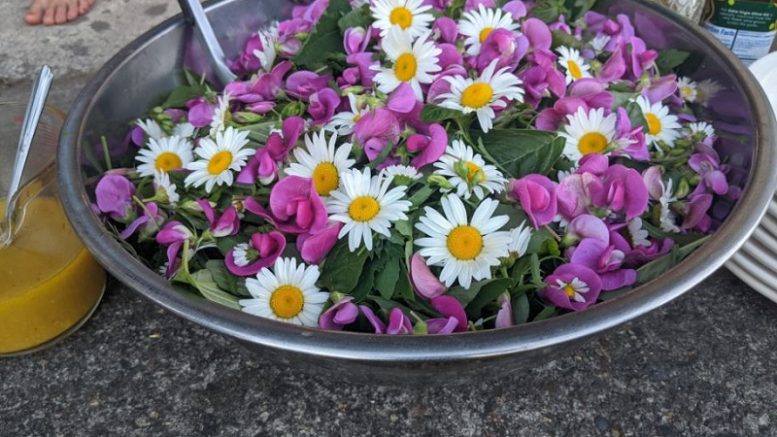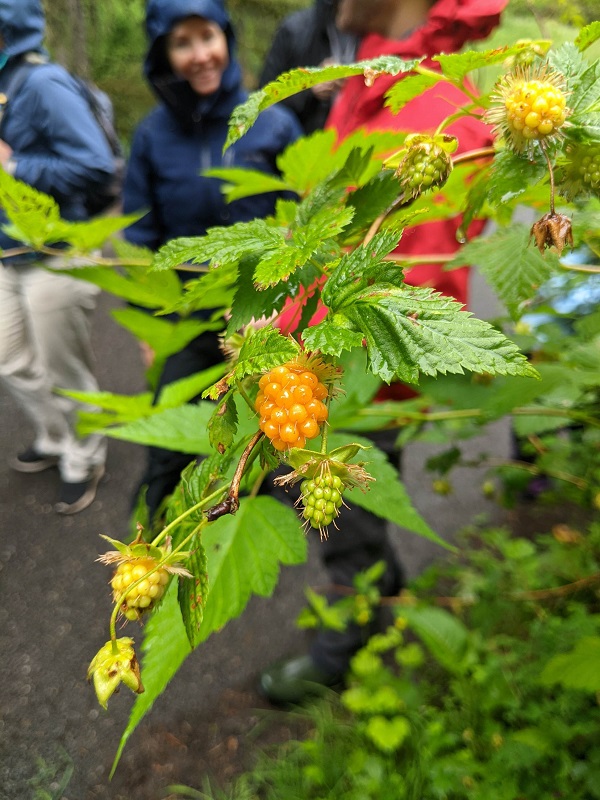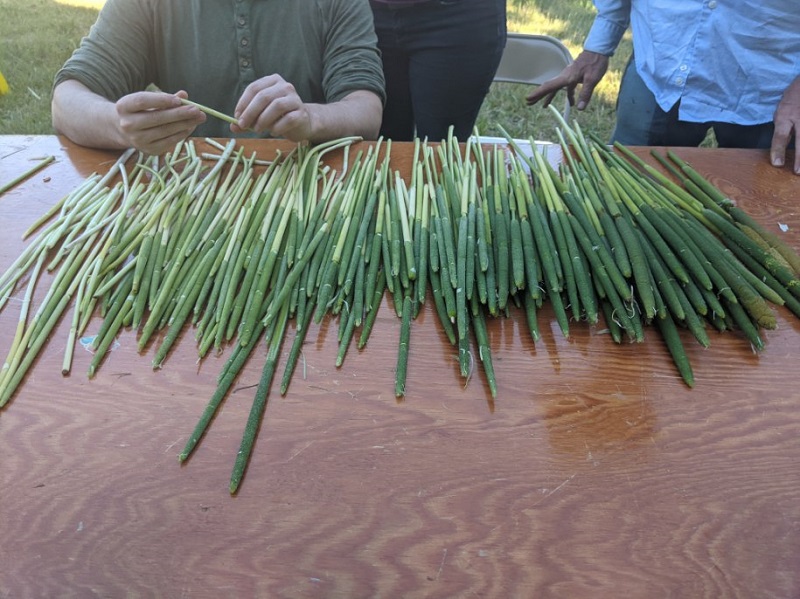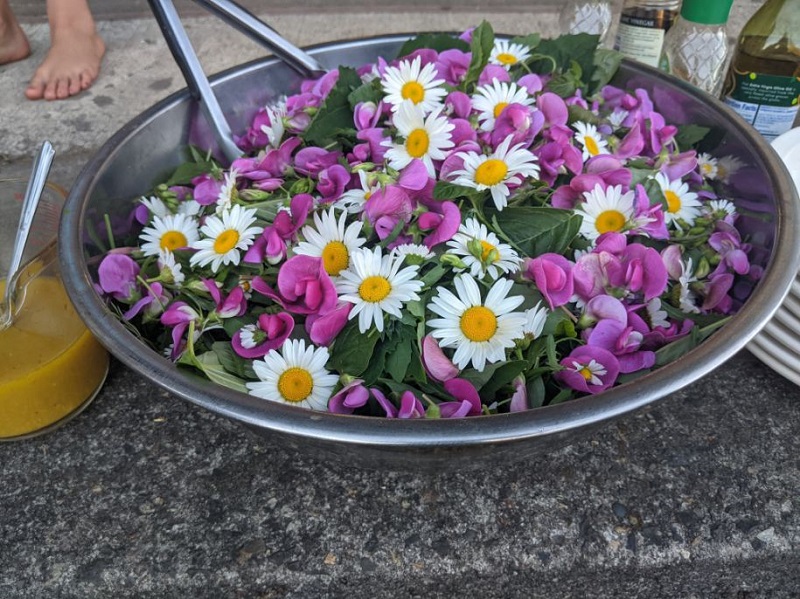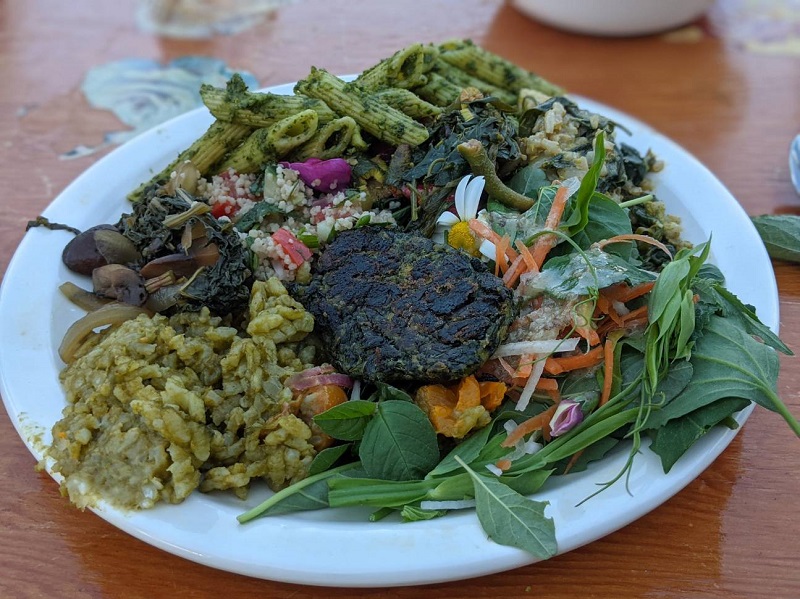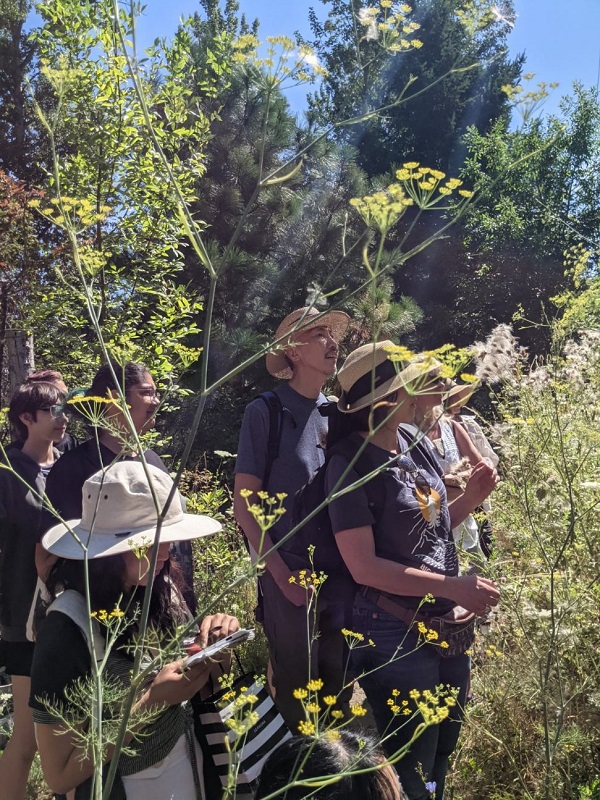Have you ever taken a hike in the woods, come across unidentified berries and wondered if eating them would be a delightful snack or leave you bent over with intestinal pains?
Dr. John Kallas has remedied some of those curiosities through his lively and knowledgeable workshops to educate the public about wild, edible foods. To him, wild foods are regular foods that should be enjoyed and added to your plate for a diverse diet.
Wild Food Adventures
Kallas is the owner of Wild Food Adventures and offers several workshops during the spring and summer seasons for adults and children alike—all in different locations around Portland, the Oregon coast, and Willamette Valley. Workshops range from 3 hours to 3 days, depending on how deep you want to go down the foraging rabbit hole!
You can learn about which fiddleheads are ripe for the picking in the Wild Foods of Forest Park workshop, spot edible sea vegetables like nori and kombu in Sea Vegetables and Other Seashore Edibles of the Pacific Coast, dig for native arrowhead (locally known as Wapato) in the Wapato Island Wild Food Expedition, or my personal favorite, take a GingerRoot Wild Food Rendezvous for a weekend getaway!
Wild Food Adventures offers a few overnight getaways for those who want to do a little camping and lots of harvesting and eating. The GingerRoot Wild Food Rendezvous is cost-effective for families who want to be closer to nature, as everyone can sleep in their own tent or park their camper van in the community building parking lot.
Spend the weekend traveling to various habitats, learning about edible greens, wild sweet peas, cherries, elderberry flowers, and the most surprisingly delicious edible, the cattail.
Throughout the weekend, you will harvest plants for two massive feasts – one, made entirely of foods that were harvested, and the second, made out of meals incorporating wild edibles as the main act. John not only teaches you what foods are edible, but teaches you ways you can process and cook them. These edible foods will shock you with their flavor and versatility.
What to Bring
Most workshops don’t require much equipment, but it is always suggested to bring a hat to protect from the sun and elements, long sleeves and trousers, bug repellent, and for those more serious foragers, a holster to carry your shears and fruit picking tools – we like this one.
For those who can’t get enough of Wild Food Adventures, discounts are available in a multitude of ways – Children 0-6 years old (FREE), 7-17 (pay their age in standard workshops), $5 discount each for family members attending together, Native Americans, Scout Leaders, and full-time college students.
Foragers are a unique group of people, and Wild Food Adventures set a very respectful and enjoyable atmosphere, so you are bound to make a few friends at any of these workshops, as well as many memories with your family.
You will never take a walk in the wild or through your neighborhood with the same perspective on plants again.
To read more about some of the foraging adventures I have taken, check out this post here.

